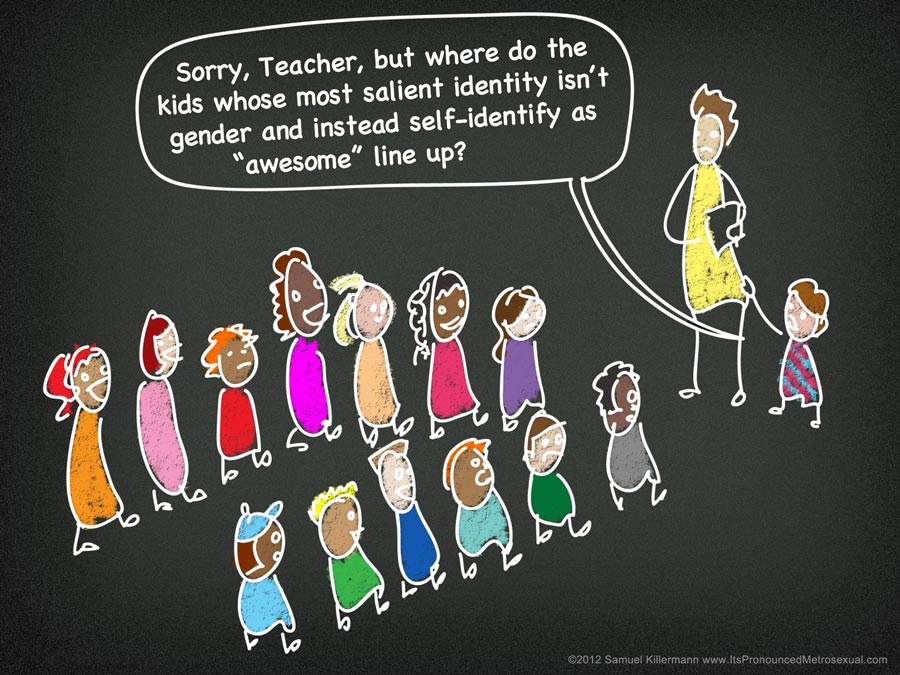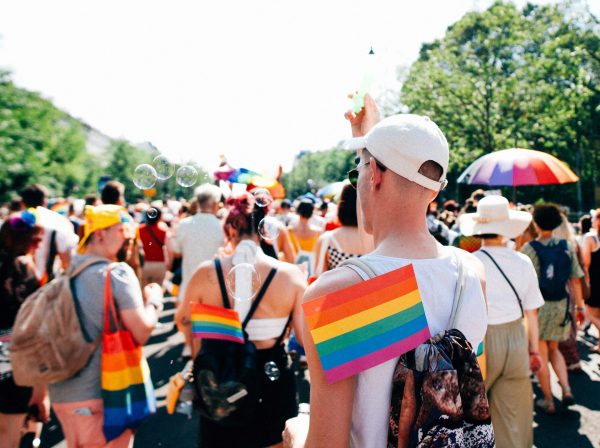Labels are frequently made out to be self-centered, divisive things. The most visible example of this can be witnessed daily on social media during social justice conversations. It is heard from trolls, really great people who do not yet “get it,” and even from X, Y and, Z activists (including, but not limited to, White Feminists).
Labels are just as nuanced as everything else. Still, they can be a good thing. That is self-identification with one” label” or another, or many. Woman of Color, Trans*, anti- X, Y, and Z advocates, gay, or women: these are merely a few in the ever-growing slew of identities deemed”Labels.”
Firstly, speaking out against a given specific form of prejudice, bigotry, violence, subjugation, stereotypes, discrimination, inherent bias and how these collectively make up The System that injures a given demographic in a unique way is not “bad.” It’s necessary, and it certainly does not mean that speaking out or speaking up about a specific aspect of society that impacts a specific group in a specific way, discrediting others’ life experiences with the same complexities, nor are we saying that those are less important. The belief that we are usually coming from the same people confusing “identity” with “label” in an accusatory everyone else. (Check out Kat Blaque’s Facebook page for some examples and some generally awesome content.)
Secondly, labels applied to oneself are not inherently “bad” (whatever that encompasses). It can be powerful. Identifying as Genderqueer changed my life. Suddenly, when I discovered the umbrella term, there was a word for the unexplained, painful, constant, internal battles with my body and self. It showed me that there are others like me out there! It’s an important phenomenon, common and pervasive enough to justify giving that experience its own label. And there was wiggle-room to explore terms and identities and experiences to find one that fits just right (Gender Fluid). Who knew!
Notice that some terms are significantly more marked than others. Julia Sereno describes “marked” in regards to society as a trait that is seen as “exotic,” “remarkable,” and “visible.” Having a trait that is deemed “exotic” means that one often feels entitled to know (for example, why someone is gay, or trans, and so on); having a trait that is deemed “remarkable” means that one often feels entitled to remark on or barrage the person with questions without consequence or causing offense (for example, commentary about someone seen with a mobility aid: that person is too young to be using a cane, he’s probably faking it).
A major dichotomy about labels–what they are, what they do, why they do it–is the fact that they are either seen as “good” or “bad,” “positive” or “negative.” In reality, labels are both! Labels as self-identification can be good (LGBTQIA+, Cripple, radical feminist, Black, and anything considered a label but one has applied to oneself as an identity indicator). The trouble comes when labels are pushed on us without our consent. A black individual may identify as Black, but not a “minority.” A monosexual LGBTIA+ individual may identify as Gay but not “Queer” (or the other way around). Many identities that were once “labels” have been reclaimed. Bisexuality, for example.
When a person or group of people push labels on us, they are pushing stereotypes on us, and this is also where the trouble comes in (“Angry Black Woman” trope, “Gay Biffle” trope, etc.).
The term itself has become loaded. It may be used as a catch-all for “divisive.”Labeling” is not divisive to movements or causes; they do not cause chasms in movements in deliberate ways harboring the intent to cause a chasm. Labels can be identity. The trouble with “labels” is it seems everybody but ourselves gets to give us one, and the ones we give ourselves are frequently deemed invalid or problematic.





